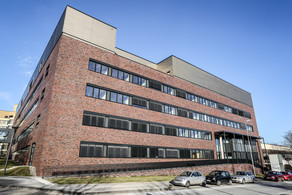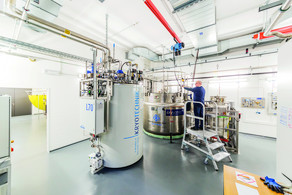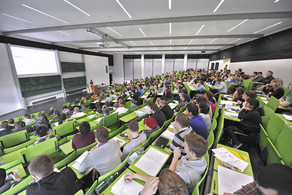Physics and medical physics in a nutshell
Physics
Physics is a natural science that studies the fundamental properties of space and time, the universe and its building blocks, as well as fundamental forces and forms of energy. The aim of physics is to describe the observable structures and processes in the universe. It proceeds methodically: on the one hand, precise observations have to be made and regularities established, e.g. the movement of celestial bodies with gigantic telescopes, the change of solids with the help of extremely powerful lasers and ultra-sharp microscopes in laboratories, or the formation of elementary particles through huge experiments at particle accelerators. On the other hand, these observations and regularities have to be described by physical models, e.g. Maxwellian electromagnetism, the theory of relativity or quantum mechanics. These models are typically formulated in the language of mathematics. In the process, an exciting cycle begins that is typical of any form of science: a model derived from observations and formulated in mathematical terms makes concrete predictions and must be able to be measured against further observations. If a measurement is found that is not consistent with the model under investigation, it must be revised or even discarded. This leads to new predictions and measurements, and thus to an improved understanding of nature.
An example: astronomers observe the course of the planets for centuries, Kepler finds astonishingly simple laws in the observations, which Newton in turn explains with the theory of gravity, inventing differential calculus in the process. Calculations then show that there must be more planets, and finally Neptune is found at the predicted location.
However, physics is not only basic research, but often also application-oriented. There are areas of physics that have a strong overlap with other, often technological, fields. In most cases, applied physics focuses on questions from these areas and uses knowledge of physical processes and models to answer them. Prominent examples are nanotechnology, materials science or medical physics.
Medical physics
To an ever greater extent, medicine is also applied physics. Modern medicine is inconceivable without highly complex and sophisticated devices, which have long been integral to hospitals and medical practices. Ultrasound imaging reveals deposits in arteries. Strong magnetic fields in MRI systems make muscles, organs, and fat visible. Physics plays a role not only in diagnosis, but also in treatment: Lasers cut more precisely than scalpels, and accelerators can destroy tumors with high-energy radiation while preserving the surrounding healthy tissue.
Experts are needed to develop and to use this complex technology. Medical physicists are needed. With their knowledge of physics, they help to make medicine better, safer, and thus more humane as well. They build a bridge between the disciplines, and also between industry and the hospital. Besides developing the necessary technologies, medical physicists often are the ones who put them to use in treating patients. This requires not only technical know-how, but also a sense of responsibility and skill in dealing with people.
Our research areas
The Department of Physics at TU Dortmund University has five main areas of research, which are representative of the broad spectrum of open questions in physics.













